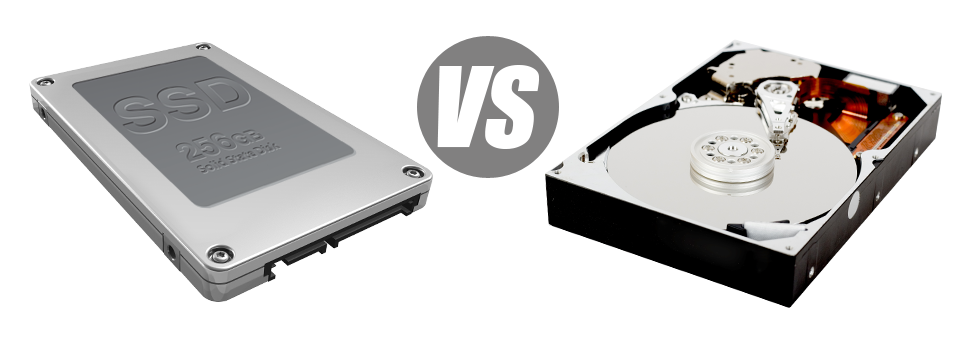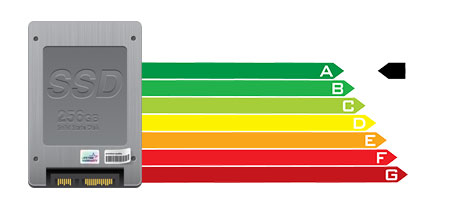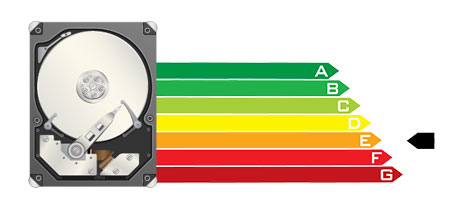When you have a web site or perhaps an web app, rate of operation is crucial. The speedier your website functions and the quicker your applications work, the better for you. Because a website is simply a selection of files that talk with each other, the systems that keep and work with these data files have a crucial role in website effectiveness.
Hard drives, or HDDs, were, right until recent years, the most trusted products for keeping information. Nonetheless, recently solid–state drives, or SSDs, are actually rising in popularity. Look into our comparability chart to view whether HDDs or SSDs are more suitable for you.
1. Access Time
After the launch of SSD drives, file access speeds are now through the roof. As a result of new electronic interfaces used in SSD drives, the regular data access time has been reduced into a record low of 0.1millisecond.
The technology behind HDD drives times back to 1954. And while it’s been substantially polished over time, it’s even now can’t stand up to the imaginative ideas behind SSD drives. Utilizing today’s HDD drives, the highest file access speed you’re able to attain differs somewhere between 5 and 8 milliseconds.
2. Random I/O Performance
The random I/O performance is critical for the operation of a data storage device. We’ve conducted thorough tests and have confirmed that an SSD can deal with at the very least 6000 IO’s per second.
Over the same lab tests, the HDD drives turned out to be much slower, with simply 400 IO operations maintained per second. Although this may appear to be a significant number, for those who have a busy server that hosts plenty of famous sites, a sluggish harddrive could lead to slow–loading websites.
3. Reliability
The lack of moving components and rotating disks inside SSD drives, and also the latest developments in electric interface technology have resulted in a considerably safer file storage device, having a normal failure rate of 0.5%.
As we already have documented, HDD drives depend on rotating hard disks. And anything that uses plenty of moving components for prolonged time periods is at risk from failing.
HDD drives’ normal rate of failure varies somewhere between 2% and 5%.
4. Energy Conservation
SSD drives operate nearly noiselessly; they don’t make excess heat; they don’t require more cooling down solutions and also use up significantly less power.
Tests have established the average electrical power utilization of an SSD drive is amongst 2 and 5 watts.
As soon as they have been constructed, HDDs were always very electric power–hungry equipment. So when you’ve got a hosting server with quite a few HDD drives, this will likely add to the regular monthly electric bill.
Typically, HDDs take in between 6 and 15 watts.
5. CPU Power
Because of SSD drives’ greater I/O effectiveness, the leading hosting server CPU will be able to process data calls faster and preserve time for additional procedures.
The common I/O delay for SSD drives is only 1%.
HDD drives support sluggish access rates compared with SSDs do, resulting for the CPU required to hang on, although arranging resources for the HDD to discover and return the required file.
The common I/O delay for HDD drives is about 7%.
6.Input/Output Request Times
The vast majority of Mark Love’s new web servers now use just SSD drives. Each of our lab tests have demostrated that having an SSD, the typical service time for any I/O request although operating a backup stays below 20 ms.
Using the same web server, however, this time built with HDDs, the effects were different. The normal service time for an I/O call changed somewhere between 400 and 500 ms.
7. Backup Rates
Another real–life development will be the rate with which the back up has been created. With SSDs, a web server back up now requires under 6 hours implementing Mark Love’s server–enhanced software.
Through the years, we’ve employed largely HDD drives on our web servers and we are familiar with their effectiveness. With a web server built with HDD drives, a complete hosting server backup normally takes around 20 to 24 hours.
With Mark Love, you will get SSD–driven website hosting solutions at good prices. The shared website hosting plans plus our Linux VPS hosting incorporate SSD drives automatically. Get an hosting account with Mark Love and observe the way your websites will become much better promptly.
Hepsia
- Live Demo
Service guarantees
- Subscribe now. There aren’t any installation costs you’ll also find complete root and SSH access to the server. 99.9% network availability is warranted.
Compare our prices
- Examine the instruments and characteristics offered by our Virtual Private Servers. You can start with a cheaper VPS Hosting setup and move up with just a mouse click as your requirements expand.
- Compare our hosting plans
Contact Us
- We’re available for you 7 days a week to reply to any kind of questions in relation to our VPS Hosting services. 1–hour response time warranty.














